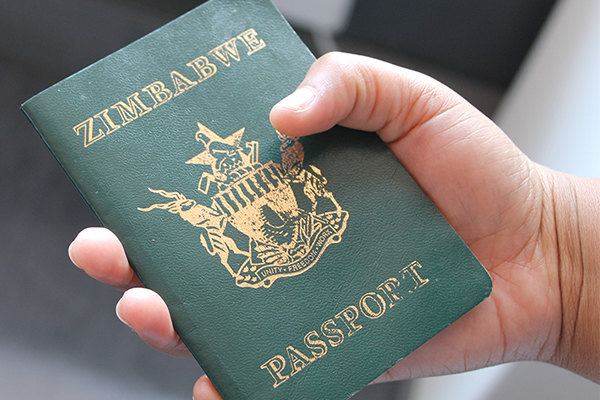Passport price up to US$318 as demand skyrockets

HARARE – Zimbabwe is struggling to process 256,000 passport applications, ministers said on Wednesday as passport application fees were hiked.
The country’s sole passport production facility in Harare is printing an average 2,000 passports per day, although officials say it has capacity to churn out 8,000 documents.
Ministers on Wednesday were told the major reason the Registrar General’s office has been unable to ramp up passport production is because the government has been subsidising passport printing by charging uneconomic fees. Compounding the problem is that the ink and paper used for the passports is imported from Europe, requiring advance payment of scarce foreign currency.
Cabinet immediately ordered an upward review of passport fees, which ministers hope will increase the Registrar General’s capacity to produce more passports, and faster.
The finance ministry is also providing US$4.5 million emergency funding to procure vital raw materials, information minister Monica Mutsvangwa announced on Wednesday.
Passport fees last reviewed in February last year were Z$150 for an ordinary passport and Z$600 for a three-day passport – but the government subsequently stopped processing emergency passports in the local currency.
Mutsvangwa said ministers were told that it costs about US$58 to produce a passport.
New passport fees announced by Mutsvangwa will see an ordinary passport pegged at US$60, a three-day passport US$200 and a 24-hour emergency passport US$318 or the Zimbabwe dollar equivalent at the prevailing exchange rate. An emergency travel document will now attract a charge of US$80.
Mutsvangwa added: “The public is assured that passports issuance services will run uninterrupted until the backlog is cleared. The passport issuance shifts will be increased to three in order to expedite production. New machines are being acquired in order to improve operations. The training of personnel to work on the passport issuance programme will commence immediately. Import substitution will be embarked upon in order to reduce the imports bill by engaging local industry and the university innovation and industrial hubs.”




